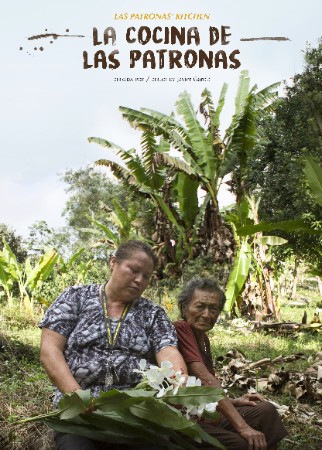
La Cocina de las Patronas 2016
Distributed by Third World Newsreel, 545 Eighth Avenue, Suite 550, New York, NY 10018; 212-947-9277
Produced by Iliana Martinez, Ana Paula Uruñuela, and SacBé Producciones
Directed by Javier García
Streaming, 66 mins
College - General Adult
Immigration; Postcolonialism; Women's Rights
Date Entered: 09/09/2020
Reviewed by Steven Guerrero, Media Arts & Digitization Librarian, University of North TexasLa Cocina de las Patronas follows Las Patronas, a group of women in Mexico who united to provide food, water, and clothing to migrants who pass through Mexico on their way to the United States from Central America. What began as a simple act of kindness in 1995 soon grew into more than twenty years of an enduring movement that has garnered international attention for their acts of humanitarianism and spotlighting of human rights violations at the hands of the systemic criminalization of migrants.
Director Javier Garcia tells an interwoven story of Rosa Nila’s daily work with the group in Guadalupe, Veracruz, Mexico, while also highlighting founder Norma Romero Vasquez’s travels around Mexico and Spain as she receives awards and recognition on behalf of Las Patronas. Interspersed throughout are scenes of Las Patronas shopping in markets, cooking in their group kitchen, and their dangerous task of handing off supplies to the migrant people as they commute atop the “La Bestia” train. These scenes ground Rosa and Nora by showing their struggles to make ends meet in an agricultural market that is gradually de-valuing the coffee berry and sugarcane crops that they raise. Despite their increasing financial troubles, Las Patronas continue their work by spreading the message that activism can be done through sheer will and hope in the face of the systemic de-humanization of people who risk their lives to provide for themselves and their families.
This film does an exemplary job of showing the work done by Las Patronas, as well as the ways in which the problems they address are connected to an ever-expanding web of additional human rights violations and people in need of support.
The film would support subjects such as Mexican Studies, Women’s Studies, and Indigenous and Native studies. The film is highly recommended.
Awards:
ACAMPADOC, Best Documentary, Panama, 2017; Audience Award, Best Documentary, DocsPuebla, 2018; IberRutas Award, Global Migration Film Festival, International Organization for Migration, Buenos Aires, 2018